Best Parlor Guitar 2024 - Budget, Mid & High End
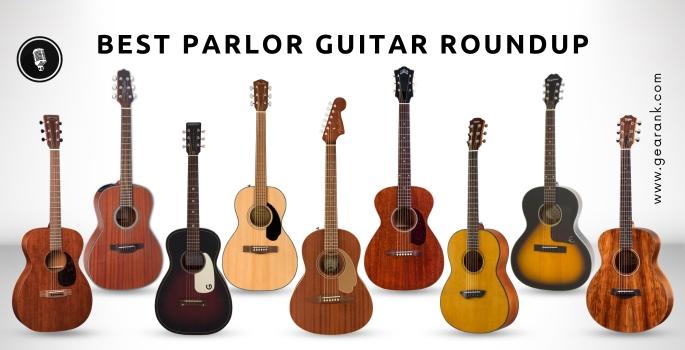
Author's Pick
This is a review of my favorite parlor acoustic guitar, which I play regularly.
Takamine GY11ME
Cons
- Not as full sounding as bigger acoustics
- Built-in preamp had issues after 3 years
- No solid wood component
Pros
- Easy on the hands beginner-friendly playability
- Vintage parlour guitar style square tapered slotted headstock
- Mid-focused voicing great for blues, rock, and older musical styles
- Reliable tuning and intonation
- Proven beginner-friendly durability
- Compact body
The Takamine GY11ME is my first parlor guitar and remains as my author's pick for this 2024 edition.
Takamine is known for stage-ready yet reasonably priced acoustic-electric guitars, so when I saw the GY11ME at our local store, I immediately checked it out.
I was initially drawn to its classic aesthetics, especially its nice-looking square tapered slotted headstock, which matches its "New Yorker" parlor style body. This was a big deal because Takamine usually employs their regular headstock shape on their acoustics. The top, back, and sides are crafted from mahogany and wrapped in a natural satin finish with lovely wood grain patterns. It doesn't have a solid mahogany top, but it does get the look right.
Given its tonewood configuration and shape, it produces a warm midrange-focused tone that suits my preferred styles of music, which include fingerstyle blues, gospel, rock, and the like.
Takamine equipped it with a TP-4T pickup and preamp system for plugging in. It has essential controls, including 3-band EQ and gain, and a nifty built-in tuner.
Another factor that made me get this parlor-sized guitar is its easy playability, thanks to its shorter scale length, flat fretboard radius, and narrow nut width. At the time, I was looking for an excellent pickup-equipped acoustic that was easy enough to play for my son, who I trained to play on a 3/4 size nylon string parlor guitar. So it made perfect sense to get the GY11ME, especially considering I had been hunting for a parlor guitar.
Thankfully, my son's transition into steel string went smoothly, and I also enjoyed the GY11ME as a beater couch guitar. Fast forward to today, the GY11ME is still our go-to guitar at home, surviving hours and hours of practice, and it has seen action in many church services, school events, gigs, and home recordings.
The Takamine GY11ME scratched my parlor guitar itch with its classic appeal, smooth action, and bluesy tone. This is the best parlor guitar with built-in pickups in its price range. It's highly recommended if you're into similar musical styles and guitar aesthetics.
Note that this GY11ME model is now superseded by a newer version with slightly different specs, including a Sapele body and a non-slotted headstock (non-slotted). It looks more in line with other Takamine, but I prefer the classic slotted headstock design.
Specifications
- Body Shape: New Yorker Parlor
- Top: Sapele (Previously Mahogany)
- Back and Sides: Sapele (Previously Mahogany)
- Finish: Natural Satin
- Bridge: Laurel
- Neck: Mahogany
- Neck Profile: Soft-C
- Fingerboard: Laurel
- Fingerboard Radius: 12"
- Number of Frets: 21
- Frets to Body: 14
- Scale Length: 24.8”
- Nut Width: 1.67"
| Website | Source | *Rating Value |
| Gearank | Alexander Briones | 95/100 |
Demo
Best Parlor Guitars Under $200
Gretsch G9500 Jim Dandy Flat Top
Cons
- Some minor cosmetic flaws
- Don't expect a full-bodied tone
Pros
- Bluesy midrange focused tone
- Period correct Gretsch Rex build
- Comfortable playability and portable
- Great value for money
The Gretsch G9500 is an excellent example of the staying power of parlor guitars, impressing modern players with its old-school design and tone, inspired by '30s era Gretsch Parlor Style Guitars called "Rex."
The top, back, and sides are crafted from basswood, forming a compact parlor-style body that makes this a handy beater instrument you can easily carry when needed. The G9500's compact body and short-scale neck make it easy to pick up and hard to put down.
The neck is crafted from nato with a C-shape profile, and it joins the body at the 12th fret following traditional blues box specs.
This cheap parlor guitar offers an excellent value at this price point, but don't expect it to have perfect cosmetics. Consider upgrading the nut and saddle for better tone and sustain.
If you're looking for an affordable parlor guitar that you can just grab-and-play, then check out the Gretsch G9500 Jim Dandy Flat Top.
Specifications
- Body Shape: Parlor
- Top: Basswood
- Back and Sides: Basswood
- Finish: Semi-Gloss Polyurethane
- Bridge: Walnut
- Neck: Nato
- Neck Profile: "C" Shape
- Fingerboard: Walnut
- Fingerboard Radius: 18"
- Number of Frets:
- Frets to Body: 12
- Scale Length: 24”
- Nut Width: 1.6875"
| Website | Source | *Rating Value |
| Guitarspace | Alizabeth Swain | 90/100 |
| Guitar Kitty | Iris | 90/100 |
Demo
Fender Sonoran Mini
Cons
- Odd combination of Strat-style headstock and parlor shape body
- All-laminate tone woods
Pros
- Distinct visual appeal with its Strat-style headstock
- Good quality body and fret workmanship for the price
- Cutting trebly tone with good mids
- Easy playability and comfortable to play
The Fender Sonoran Mini stands out from the lot with its odd combination of a Strat-style electric guitar shape headstock and a parlor-style body. This won't appeal to those who prefer traditional parlor guitar designs, but it does have its unique charm. And since the tuners are aligned on one side of the headstock, this setup is generally easier to tune.
It features a short scale length of 24.1 inches, which makes it easier on the hands. Interestingly, the neck looks longer than other short-scale guitars because of its 14th fret neck joint. This allows for better access to higher frets but can be a deal breaker for those who prefer traditional 12th-fret neck joints. The Nato neck has a slim-taper "C"-shaped profile, similar to Strats, paired with a walnut fingerboard,
The body maintains a traditional build, with laminated mahogany for the nack and sides and a choice of laminated spruce or mahogany for the top, depending on the model. Laminate specs are a letdown, but this is to be expected in this price range.
It sounds crisp and more trebly than other parlor guitars, making this a good counterpoint instrument when jamming with warm sounding acoustics. But because of its focus on the upper mids, projection is lower than other acoustic guitars.
The Fender Sonoran Mini is a parlor guitar that implements modern sensibilities without compromising uniqueness. This charming (or odd) looking parlor guitar is worth checking out, especially if you're in the market for a budget friendly parlor guitar.
Specifications
- Body Shape: Sonoran Mini
- Top: Mahogany
- Back and Sides: Mahogany
- Finish: Satin
- Bridge: Walnut
- Neck: Nato
- Neck Profile: C
- Fingerboard: Walnut
- Fingerboard Radius: 15.75" (400 mm)
- Number of Frets: 18
- Frets to Body: 14
- Scale Length: 24.1"
- Nut Width: 1.615"
Demo
Fender CP-60S Parlor Guitar
Cons
- Low action sometimes causes fret buzz
- Can be a bit too small for some
Pros
- Solid spruce top
- Good craftsmanship for the price
- Easy on the hands
- Good midrange tone
The Fender CP-60S is a step above other similarly priced parlor guitars regarding specs because it sports a solid spruce top, which is quite a steal.
The guitar's solid spruce top and mahogany back and sides form its slim body, resembling blues boxes of the past both in terms of look and cost.
Thankfully, this one comes with something other than manufacturing issues of the past. Instead, the CP-60S' craftsmanship meets current build quality standards.
It also has better tuners and modern fretwork to avoid the usual tuning and string setup problems that plague old parlor guitars.
It has a mahogany neck that joins the body at the 14th fret and a walnut fingerboard with rolled edges. It has a low-action setup, making playing easier, but it can also cause fret buzz when strumming hard. It doesn't specify if its a solid mahogany neck, but it feels solid nonetheless.
With its solid spruce top and big brand backing, the Fender CP-60S is a great deal; it is an excellent entryway into the world of parlor guitars.
Specifications
- Body Shape: Parlor
- Top: Solid Spruce
- Back and Sides: Mahogany
- Finish: Gloss Natural / 3-Color Sunburst
- Bridge: Walnut
- Neck: Mahogany
- Neck Profile: Easy to Play Shape
- Fingerboard: Walnut
- Fingerboard Radius: 12"
- Number of Frets: 20
- Frets to Body: 14
- Scale Length: 24.75”
- Nut Width: 1.6875"
| Website | Source | *Rating Value |
| YouTube | Johnny Adams | 92/100 |
Demo
Parlor Guitars Under $500
Yamaha CSF1M
Cons
- Not for those who prefer blues box style tones
- Pickup is passive
Pros
- Projects like regular size acoustics
- Fuller sounding tone
- Great build quality
- Student-friendly playability
Drawing from their experience and expertise with nylon string guitars, Yamaha gave the CSF1M a parlor-style body that follows the shape of a classical guitar, albeit smaller.
This shape gives it a distinct yet familiar appeal and adds more volume and low end to its tone. It also has a solid Sitka spruce top that helps it project better, with volume and tone closer to regular acoustics than what other parlor guitars offer.
The solid top is paired with laminate mahogany for the back and sides. And the craftsmanship shows that this is really a good quality parlor guitar.
The neck is crafted from nato and topped by a 23.5" short-scale rosewood fingerboard, slightly wider than the usual 1.692" nut width.
It comes with a built-in discrete SRT Zero-impact piezo pickup; note that this is a passive pickup, meaning it is meant to be paired with a preamp pedal or compatible acoustic amp. You can opt for the Yamaha CSF TA if you want to experience the company's impressive TransAcoustic technology which adds chorus and reverb right on the body of the guitar, even when unplugged.
If you're looking for a compact guitar that stays within the acoustic sound you're familiar with, this is for you.
Specifications
- Body Shape: Parlor
- Top: Solid Sitka Spruce
- Back and Sides: Mahogany
- Finish: Gloss Tobacco Brown Sunburst or Vintage Natural
- Bridge: Walnut
- Neck: Nato
- Fingerboard: Rosewood
- Fingerboard Radius: 16"
- Number of Frets: 20
- Frets to Body: 14
- Scale Length: 23.5”
- Nut Width: 1.692"
| Website | Source | *Rating Value |
| YouTube | The Guitar Spa Singapore | 92/100 |
Demo
Best Parlor Guitars Under $1000
Taylor GS Mini-e Koa
Cons
- Quite pricey for a small guitar.
- No gritty parlor guitar tones here
Pros
- Impressively big and clear sounding for a small guitar
- Has a sweeter tone compared to other GS mini variants
- Taylor's quality craftsmanship, impressive for the price.
- Great sounding amplified tone
I was initially skeptical when I got my hands on a Taylor GS Mini-e Koa, but its impressive build quality and attention to detail quickly won me over. It's quite pricey for a small guitar, but its meticulous craftsmanship makes it a worthy investment.
Closer inspection shows why you must pay more for this instrument, with its solid koa top that gives the guitar a unique appearance and an equally distinct tone. The resulting sound is a remarkable departure from the typical tonal characteristics associated with smaller guitars. It offers a depth, resonance, and clarity that you don't usually expect from parlor guitars. It has a warm, articulate, and resonant sound, which is more a kin to the typical acoustic guitar.
The onboard ES2 electronics faithfully capture the guitar's acoustic magic, making it an ideal choice for intimate settings and stage performances.
While the investment is justifiable given its build quality and tonal excellence, budget-conscious players may need to weigh their preferences against the cost. Additionally, for those seeking a guitar primarily for travel and casual playing, more budget-friendly options that still offer commendable performance are available. However, the cheaper alternatives will have different craftsmanship and clarity, which you can get from the GS Mini-e Koa.
Overall, this compact guitar does not compromise with its inviting playability, premium build quality, and impressive clear tone. From playing on a couch to strumming around a campfire or captivating an audience on stage, the GS Mini E Koa is a reliable companion that marries convenience with sonic excellence.
Specifications
- Body Shape: Grand Symphony Mini
- Top: Solid Hawaiian Koa
- Back and Sides: Layered Koa, Koa veneer
- Finish: Varnish
- Bridge: Ebony
- Neck: Sapele
- Neck Profile: typehere
- Fingerboard: Standard Carve
- Fingerboard Radius: 15"
- Number of Frets: 20
- Frets to Body: 14
- Scale Length: 23.5"
- Nut Width: 1.6875"
Demo
Best Parlor Guitar Options Under $2000
Martin 00-15M
Cons
- Not for those who prefer trebly tone
- Requires a substantial investment
Pros
- Beautiful warm tone
- Premium craftsmanship
- Traditional playability
- Elegant appearance
C.F. Martin & Co. remains a fixture in the acoustic guitar market, with a long list of iconic guitars and big-name artists that keep the brand up top.
The 00-15M is an excellent example of why Martin guitars are well-loved, and they didn't even need to add anything fancy to it, just good old premium craftsmanship, resulting in a great instrument that retains near-perfect ratings across major retailers.
The 00-15M has an all-solid mahogany body shaped into Martin's compact 00 style body design. This tonewood configuration of this parlor guitar makes it look premium, with an earthy appeal.
The resulting sound of this configuration prominently features the mids, giving it a warmer flavor while retaining Martin's distinct woody tone.
It is worth noting that Martin's mahogany body acoustic guitars are getting much higher ratings than their spruce counterparts, thanks to their mellow tone.
The neck is also crafted from mahogany and joins the body at the 14 fret via a dovetail neck joint.
To give it a familiar playing feel, Martin did not stray from its usual neck/fingerboard specs, equipping this with a 20-fret, 25.4" scale rosewood fingerboard with a nut width of 1.6875".
It's hard to go wrong with a Martin guitar, even more so with the Martin 00-15M, which is the dream parlor guitar of many.
Specifications
- Body Shape:00
- Top: Solid Mahogany
- Back and Sides: Solid Mahogany
- Finish: Natural
- Bridge: Rosewood
- Neck: Mahogany
- Neck Profile: Modified Low Oval / Standard Taper
- Fingerboard: Rosewood
- Fingerboard Radius: 16"
- Number of Frets: 20
- Frets to Body: 14
- Scale Length: 25.4”
- Nut Width: 1.6875"
| Website | Source | *Rating Value |
| Audiofanzine | gregprika | 100/100 |
| Tonepedia | Editor | 95/100 |
Demo
Guild M-20
Cons
- Nut width can be too wide for some
- Tone can be too warm for some
Pros
- Beautiful warm yet clear tone
- Great craftsmanship
- Vintage style look
- Premium all-solid mahogany wood construction
The Guild M-20 is a US-made parlor-style guitar that retains many of the traits it had when it was first introduced in 1967.
It sports an all-solid mahogany construction, with the top, back, and sides crafted from solid mahogany.
Its premium quality tonewood is matched with superb craftsmanship, forming its compact concert shape with a vintage style look and streamlined aesthetics.
This shape makes it more comfortable to play and compliments the all-solid mahogany body, resulting in a beautiful warm tone that retains impressive clarity, emphasizing the mids.
The neck joins the body at the 14th fret, topped by a 24.75" scale rosewood fingerboard with a slightly wider nut width of 1.75". This is paired with an elegant looking rosewood bridge.
The Guild M-20 is a no-brainer for fans of Nick Drake, but even those who aren't aware of him will find themselves in love with this guitar's tone.
Specifications
- Body Shape: M Concert
- Top: Solid Mahogany
- Back and Sides: Solid Mahogany
- Finish: Satin Nitrocellulose Lacquer
- Bridge: Rosewood
- Neck: Mahogany
- Neck Profile: "C" Shape
- Fingerboard: Rosewood
- Fingerboard Radius: 12"
- Number of Frets: 20
- Frets to Body: 14
- Scale Length: 24.75”
- Nut Width: 1.75"
| Website | Source | *Rating Value |
| Music Radar | Dave Mead, Dave Burrluck | 90/100 |
| Guitar | Huw Price | 80/100 |
| YouTube | Acoustic Life | 95/100 |
Demo
Things to Consider When Buying a Parlor Guitar
-
The label "parlor," sometimes spelled "parlour," is based on 19th-century Victorian-era reception rooms where guests were often received and entertained with musical instruments, which included parlour guitars.
In the 1930s, small-body guitars became more accessible, thanks to cheap "mail-order" guitars. These parlor guitars became widely used in early blues and folk music, earning the title "blues box".
Fast forward to today, the parlor guitar is still very much in demand, especially among experienced musicians who appreciate the tone and convenience. Much of the old design is retained, but with improved reliability and better playability, thanks to modern production technology.
These days, you can choose from a wider variety of designs and shapes, depending on your allotted budget.
-
Parlor guitars tend to be small, and have a distinct shape. Since there are no set standards that manufacturers agree on, today's parlor guitars come in a variety of shapes, sizes, and specs - the main limitation is that they should be smaller than regular full-sized acoustics like Dreadnought Guitars.
Generally speaking, the smaller the body size is, the less bottom end it will have, resulting in more midrange. This warm midrange tone is ideal for blues, folk, rock, and similar styles of music, and this distinct tone is often credited for the continued relevance of this old-school guitar design up to this day.
On the flip side, the bigger body of the dreadnought acoustic guitar gives it more bottom end and projection.
The shape also affects tone, specifically the size of the lower bout, which proportionally increases bass response. This is why some parlor guitar manufacturers opt for a bigger lower bout to give it a more balanced tonality. This balanced tone makes it viable for more musical styles, freeing it from the limitations commonly associated with parlor guitars.
-
In conjunction with its body shape, wood plays a significant role in shaping the tone of a parlor guitar. Solid wood is favored by many because it resonates better and improves with age, while laminate wood has the advantage of being more affordable and more resilient to environmental and humidity changes.
Different types of wood also affect the tone, and this difference may become more evident as your experience and playing skills grow.
Spruce is the most commonly used wood for the top, a solid spruce top guitar produces a balanced tone and has good projection.
Sapele is a common alternative to spruce, bearing many of the same characteristics as spruce, but is more affordable and environmentally friendly.
Mahogany is the favorite as the price tier goes up. It is well received because of how it further mellows the already midrange-heavy sound of small-bodied guitars.
There are also affordable and renewable alternatives to mahogany, like the nyatoh, which manufacturers use to decrease prices. In addition, other tonewood types are utilized in parlor guitars, like solid canadian cedar, solid koa, and more; each type of wood adds a distinct flavor to the instrument's overall sound. You can read more about acoustic guitar tonewoods here.
-
Guitar Scale Length is the distance between the saddle and the nut, which proportionally affects string tension. The shorter the scale length, the looser the strings feel, which impacts playability and tone.
Many parlor guitars have shorter scale lengths than their regular-sized counterparts, and this lower string tension is why many consider parlor guitars easier to play. Still, some manufacturers stick to standard scale lengths. This is the right parlor guitar for guitarists who want their instruments to have a more uniform playing feel.
Nut width determines the spacing between strings at the nut. A narrower nut width makes it easier for smaller fingers to produce different chord patterns and is ideal for those used to electric guitars.
Wider nut widths allow for more room to position your fingers on the guitar frets, ideal for those who are used to more traditionally spec'ed acoustics and classical guitars. For a more in-depth look at the acoustic guitar neck and playability considerations, you can go here.
-
Some parlor guitars come with built-in active electronics, and the most common configuration includes an under-saddle piezo pickup paired with a battery-powered preamp. This setup allows you to plug your instrument into an amp or direct it to PA systems with basic tone and volume control. This is an excellent feature to look out for, especially for those looking to perform on stage with a parlor guitar.
More premium guitars come with more complex pickup systems, some even adding a soundhole-mounted mic, which you can blend with the piezo pickup. Other manufacturers opt for passive pickups installed discretely because they do not have preamps.
This means there is no need to drill a hole in the guitar's body to position the preamp. Note that while these can be directly plugged in, this configuration works best going through a preamp first, before going to an acoustic amp or PA system.
While less popular, magnetic pickups also work well with parlor guitars in specific styles, as exemplified by the Gretsch G9520E Gin Rickey. Its throaty and gritty amplified tone works great with blues and slide playing.
Interestingly, there are plenty of non-intrusive pickup and preamp systems that you can equip into parlor guitars without too many body modifications. These types of pickups usually have basic volume and tone controls that are mounted just under the soundhole.
If you want to add pickups to a guitar that doesn't have them already installed, check out our guide to The Best Acoustic Guitar Pickups.
-
The short answer is yes. The long answer is that the compact parlor style size makes it more comfortable. The shorter scale length is also generally easier to play, which makes it a very good starter instrument. This also makes it easier to Change Strings. The main downside is the need for some playing adjustments when switching to bigger acoustics.
What is a Parlor Guitar?
Size and Shape
Wood and Tone
Scale Length, Nut Width and Playability
Pickups and Electronics
Are Parlor Guitars good for Beginners?
Best Parlor Acoustic Guitar Selection Methodology
The first edition was published in 2021. The current edition was published on January 22, 2024.
With parlor guitars, there is no set standard for guitar sizes and shapes. So we needed to distinguish between parlor guitars, travel guitars, and kids guitars. To do so, we decided to filter out those labeled as Travel guitar, Kids guitar, and 3/4 size guitars since these instruments are designed for different purposes. To be eligible for consideration to be included in this guide, a guitar had to meet the following criteria:
- Listed as a parlor guitar by the manufacturer or retailers, or sized 00 or smaller
- Have 6 steel strings (no nylon string parlor guitars like the Cordoba C9 Parlor)
- Is acoustic - with or without pickups installed
- Have a street price less than $2,000
- Had to be available from a major USA based retailer. This means that vintage parlor guitar options are not included.
With these filters set, we looked at the most popular eligible guitars currently available. For this edition, we analyzed a short list of 44 guitars, which entailed the analysis of over 5,400 relevant user reviews, discussions, ratings, and recommendations. These data were then processed via the Gearank algorithm to give us the rating scores out of 100 you see above. We used these scores to select the highest rated options in four price brackets: Under $200, Under $500, Under $1000, and Under $2000.
For more information about our methods, see How Gearank Works.
About the Author and Contributors
Here are the key people and sources involved in this guide's production - click on linked names for information about their music industry backgrounds.
Lead Author & Researcher
Alexander Briones
I have been writing about and researching music gear for many years, all while serving as a music director at my local church. I engage in guitar playing and singer-songwriter stints, in addition to mentoring young musicians and teaching guitar and bass.
I’m a big fan of the practicality and aesthetics of parlor guitars. After trying out every available parlor that I could get my hands on from local stores, I ended up getting a Takamine GY11ME for my son. It was supposed to be his, but it quickly became “our” main couch guitar. Eventually, it became our most used stage guitar, and inspired friends to also get their own parlor guitar.
Contributors
Jerry Borillo: Illustrating.
Jason Horton: Editing and illustrating.
Media
Main/Top Image: By Gearank.com using photographs of the Ibanez PN1MH, Guild M-20, Gretsch G9520E, PRS SE P20E and Fender CP-60S.
The videos have been embedded in accordance with YouTube's Terms of Service.
The individual product images were sourced from websites, promotional materials or supporting documentation provided by their respective manufacturers, with the exception of the Takamine GY11ME Headstock which was photographed by the author.



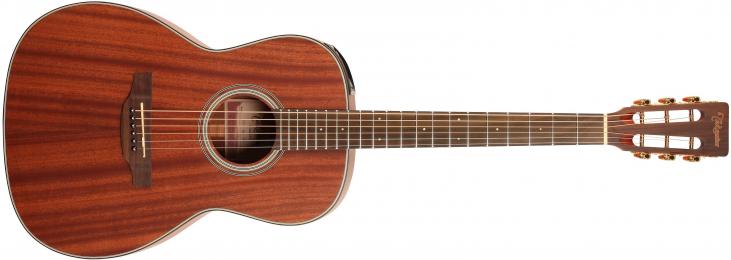
 GY11ME headstock - click to expand
GY11ME headstock - click to expand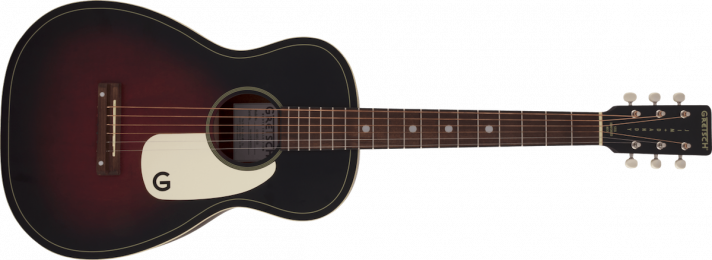
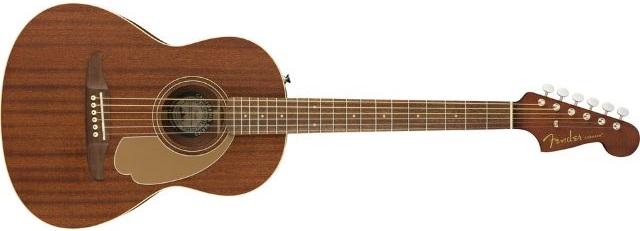
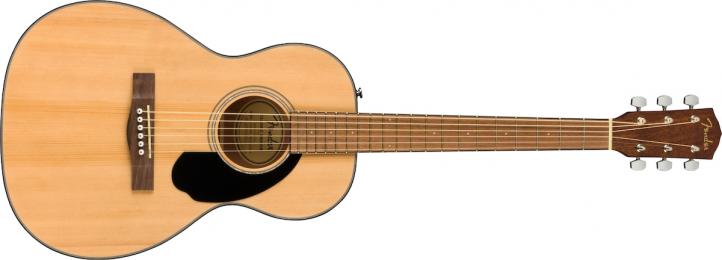
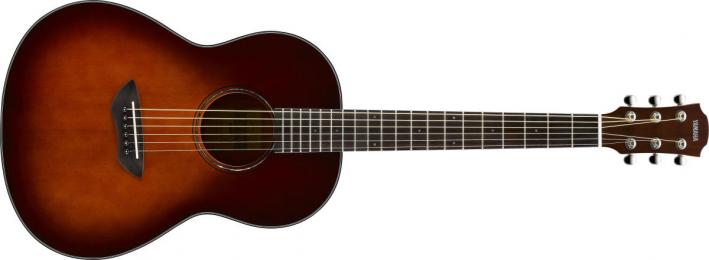
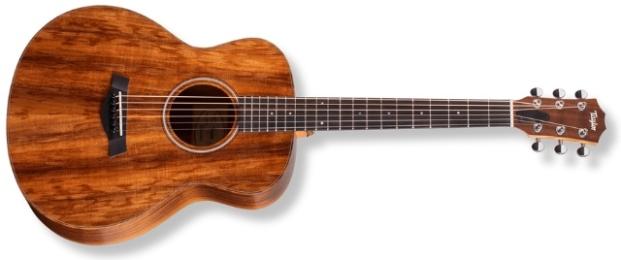
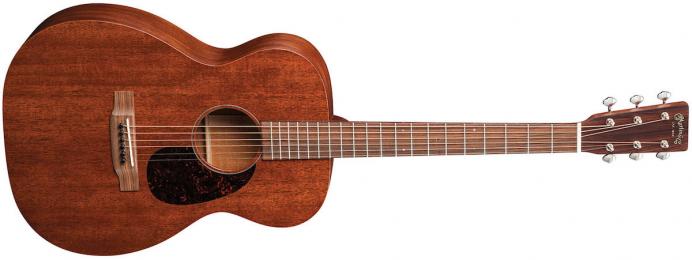
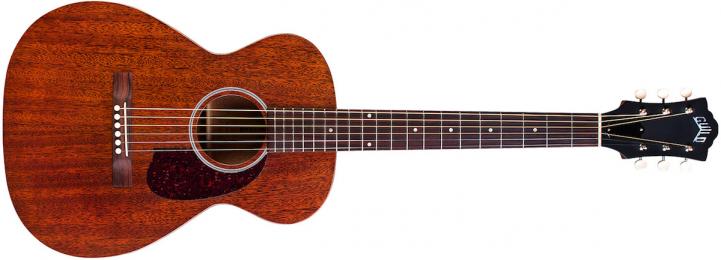
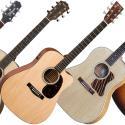
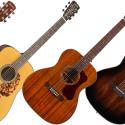



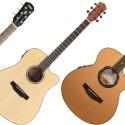
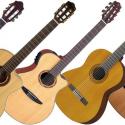
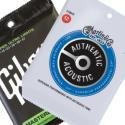
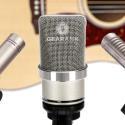

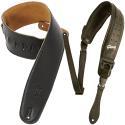
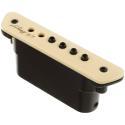
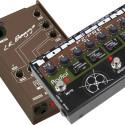
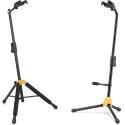
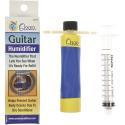
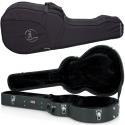
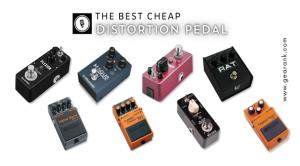
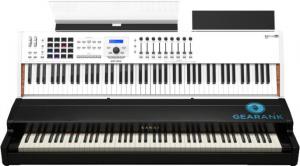
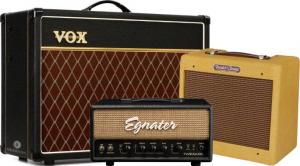
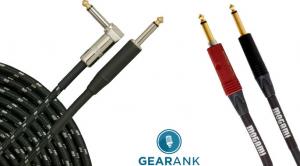
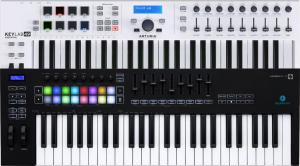
Comments
The Dean AXS Parlor came off
Submitted by Jason Horton on
The Dean AXS Parlor came off the recommended list above when we published our July 2022 Edition.
Publication of our March 2022
Submitted by Jason Horton on
Publication of our March 2022 Edition resulted in the following guitar coming off the recommended list above, but you can still see our analysis of it: Yamaha CSF3M.
Let us know if you have any
Submitted by Jason Horton on
Let us know if you have any questions about the parlor guitars listed above, or any other related questions.